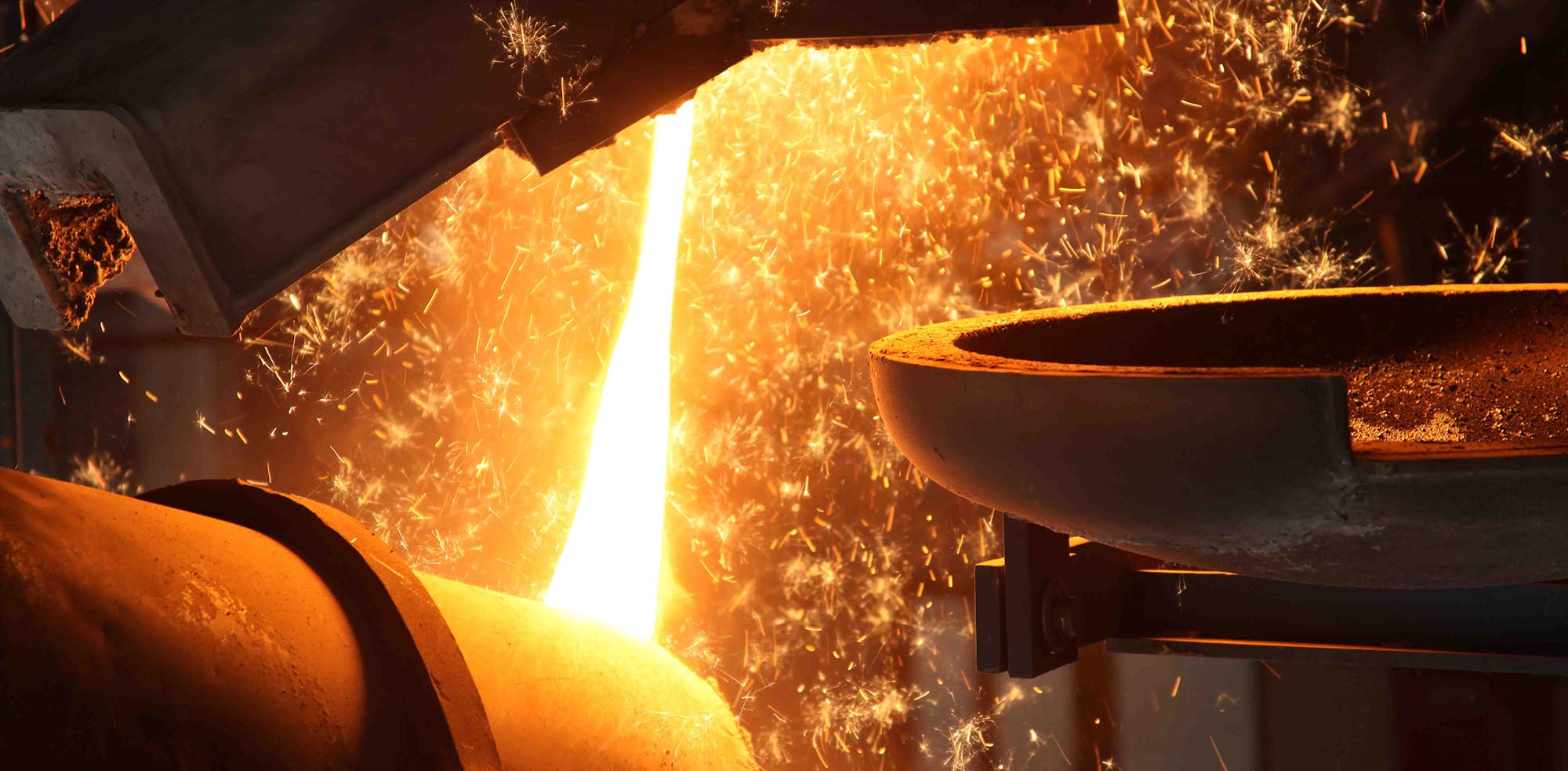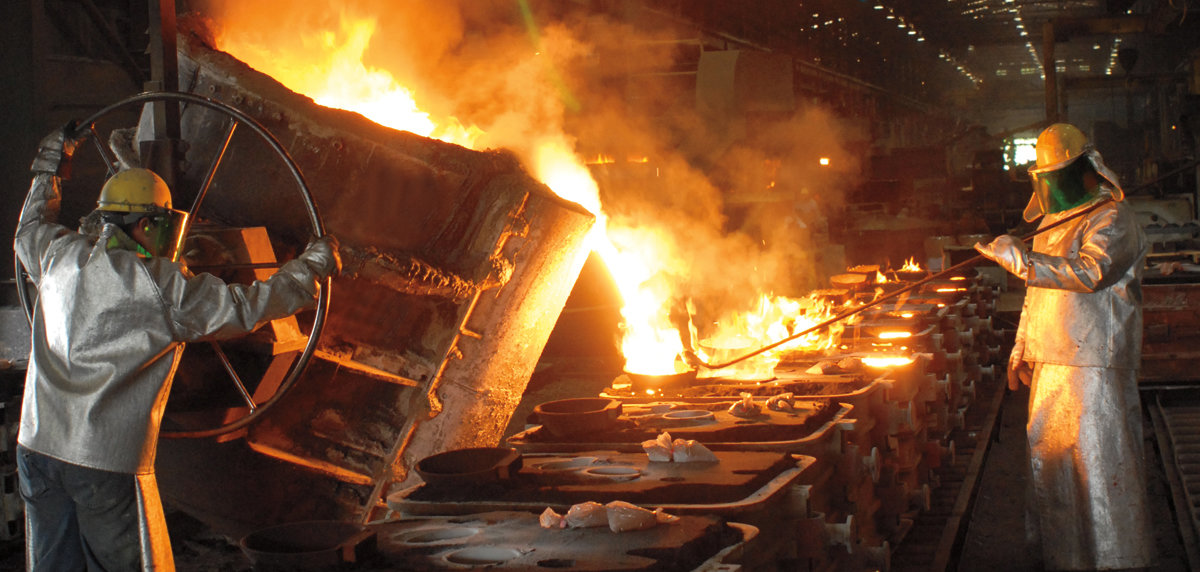Checking out the Role of a Metal Foundry in Modern Manufacturing Processes
Metal foundries are pivotal in the landscape of modern production. They give essential parts across different sectors, adapting to the needs of markets like auto and aerospace. Advanced techniques such as 3D printing and automated casting have actually changed their operations. In addition, sustainability has ended up being a priority, affecting their practices. As these foundries progress, the implications for producing performance and development are substantial, questioning about their future trajectory in an ever-changing economic situation.
The Evolution of Metal Casting Methods

With the increase of mass manufacturing, foundries took on approaches like die casting and lost foam casting, improving the production process and minimizing waste. Each advancement in metal casting techniques has provided to the needs of different markets, from automobile to aerospace. As metal casting remains to advance, the interaction between technique and modern technology stays vital in meeting modern-day manufacturing challenges, making certain that foundries adjust and flourish in an ever-changing landscape.
Assimilation of Advanced Technologies in Foundries
Traditional metal casting methods have offered the sector well for centuries, the assimilation of innovative innovations in foundries is reinventing the manufacturing landscape. Automation and robotics improve production processes, enhancing performance and decreasing the threat of human error. Technologies such as 3D printing permit fast prototyping and the creation of complicated geometries that were once impossible with conventional techniques. Additionally, data analytics and the Internet of Things (IoT) make it possible for real-time monitoring and anticipating maintenance, eventually leading to decreased downtime and raised productivity. These innovations also assist in personalization, allowing suppliers to respond quickly to market needs. As sustainability ends up being a priority, the adoption of environmentally pleasant innovations, such as electrical melting heating systems and progressed sand improvement systems, better demonstrates the sector's commitment to technology. Jointly, these innovations not just enhance functional effectiveness yet likewise placement foundries at the leading edge of modern-day manufacturing practices.
The Effect of Material Science on Foundry Procedures
Material scientific research plays a pivotal function in enhancing factory procedures, influencing both the option of materials and the total casting process. Developments in product science offer a much deeper understanding of the residential properties of alloys and steels, making it possible for foundries to select the most appropriate products for specific applications. This knowledge improves the performance and durability of cast products, which is vital for fulfilling sector criteria.
In addition, innovations in material formulations and additives add to improved casting methods, minimizing flaws and maximizing production effectiveness. The advancement of innovative metal compounds and wise products allows foundries to produce lighter, stronger parts, which are progressively looked for after in different fields such as vehicle and aerospace.
Additionally, product science aids in the recycling of steels, making processes extra affordable and efficient. By leveraging the most recent findings in product science, foundries can adapt to evolving market demands, guaranteeing their competition in a rapidly altering production landscape.
Sustainability Practices in Modern Metal Foundries
With the growing focus on environmental obligation, modern-day metal foundries are increasingly carrying out sustainability techniques to minimize their environmental footprint (Aluminum Casting). One key technique entails the recycling of scrap metal, which not just reduces waste but likewise saves power and raw products. Foundries are adopting advanced melting technologies that enhance energy effectiveness, consequently decreasing greenhouse gas emissions. Furthermore, using environmentally friendly finishes and materials has actually obtained traction, additional reducing unsafe emissions during manufacturing
Water conservation techniques, such as closed-loop air conditioning systems, are being executed to reduce freshwater usage. Lots of foundries are likewise buying renewable resource sources, like solar and wind, to power their operations, consequently reducing dependence on fossil gas. Staff training Metal Casting programs focused on sustainability methods advertise a society of ecological recognition within the workforce. These initiatives collectively contribute to an extra lasting future for metal foundries while meeting the demands of eco-conscious consumers.
The Future of Foundries in a Changing Economic Landscape
As the worldwide economic climate advances, foundries encounter a myriad of obstacles and possibilities that will shape their future (Aluminum Foundry). The raising need for light-weight materials and advanced alloys necessitates development in manufacturing methods and technical assimilation. Automation and smart manufacturing methods are coming to be essential for enhancing efficiency and lowering operational prices. Furthermore, the increase of sustainability concerns urges foundries to embrace greener processes and reusing efforts, aligning with international environmental goals
The financial landscape is likewise changing, with supply chain interruptions and changing basic material prices offering considerable difficulties. Foundries should adjust by expanding their supply resources and buying materials scientific research. Moreover, partnership with industries such as sustainable energy and electrical vehicles can promote development. Eventually, the future of foundries will depend upon their capacity to utilize technological advancements while continuing to be responsive to market dynamics and ecological imperatives, ensuring their relevance in modern-day manufacturing.
Frequently Asked Concerns
What Kinds of Metals Are Commonly Utilized in Foundries Today?
Frequently utilized steels in foundries today consist of light weight aluminum, iron, copper, steel, and zinc. These products are preferred for their varied properties, making it possible for a vast array of applications in industries such as automobile, aerospace, and building.
Exactly how Does a Shop Make Certain Quality Assurance in Its Products?

What Precaution Are Implemented in a Metal Foundry?
Metal foundries implement precaution including individual protective tools, air flow systems to lower breathing of fumes, normal safety training for employees, emergency response protocols, and rigorous devices upkeep to lessen hazards and ensure a safe workplace.
The length of time Does the Metal Casting Process Commonly Take?
The metal casting process commonly takes several hours to days, relying on factors such as the intricacy of the mold, the kind of metal used, and cooling down times. Each project's needs considerably affect the period.
What Industries Largely Rely Upon Metal Foundries for Manufacturing?
Automotive, equipment, building and construction, and aerospace sectors mostly rely upon metal foundries for production. These industries utilize cast steels for parts, making sure longevity and efficiency vital for their corresponding applications in manufacturing and assembly processes.
Metal foundries are pivotal in the landscape of modern-day manufacturing. Metal Casting. Standard metal casting methods have actually offered the market well for centuries, the integration of innovative innovations in foundries is transforming the manufacturing landscape. Developments in material science offer a much deeper understanding of the residential properties of alloys and steels, allowing foundries to select the most suitable materials for details applications. With the growing emphasis on environmental duty, contemporary metal foundries are progressively carrying out sustainability techniques to decrease their environmental footprint. Automotive, equipment, building and construction, and aerospace markets mostly depend on metal foundries for production